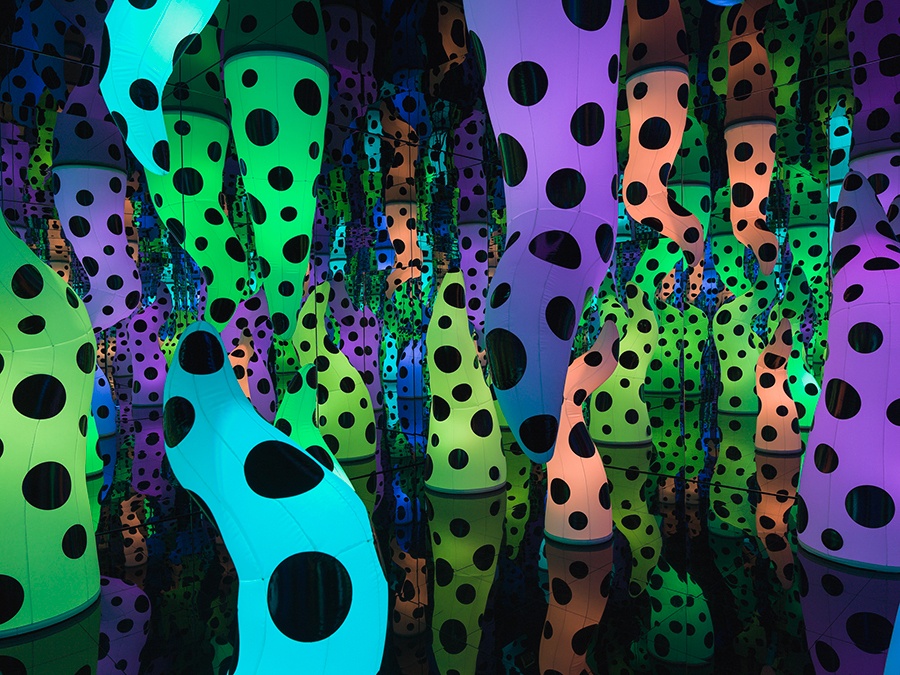Get Your Camera Ready: The Infinity Mirror Room at the ICA Has Arrived
One of Yayoi Kusama's photogenic masterpieces, called "LOVE IS CALLING," opens to the public in Boston this month.

Courtesy David Zwirner, New York; Ota Fine Arts, Tokyo/Singapore/Shanghai; Victoria Miro, London/Venice.
It’s a remarkable feat that at age 90, Yayoi Kusama has achieved stardom on Instagram, even more so considering that the vision behind her work has remained largely the same since for more than a half century, long before people were posting pictures of their experiences on social media.
So when the largest of Kusama’s wildly popular Infinity Mirror Rooms opens to the public at the ICA in Boston later this month, the museum is encouraging visitors to keep that in mind.
“She has been making important, groundbreaking, path-breaking, prescient work for 60-plus years,” says Jill Medvedow, the museum’s director, adding, “We all know she’s the most Instagrammable artist at work today, but she was important 50 years before there was an Instagram. Conveying that, sharing that, and making that clear to you and to others is our goal and our mission.”
Kusama’s LOVE IS CALLING, a 14-by-28-by-20 foot room filled with squiggly inflatable horn-like shapes and encased in reflective walls, begins its 18-month run at the ICA on September 24. There are only 20 Infinity Mirror Rooms in the world, each of them unique, and Medvedow described this one as the largest and most interactive of them all.
It’s sure to bring legions of admirers to the museum. Anticipating large crowds for the exhibit, the museum is selling tickets to gain access, which grant you a two-minute visit inside the exhibit during a 30-minute time block. It’s completely booked through October 31, and Medvedow says the first round of tickets sold out in just one hour. Your next chance to score one will be when tickets go back on sale on October 8 for ICA members, or October 15 for non-members.
Accompanying the mirrored room is an exhibit called Beyond Infinity: Contemporary Art after Kusama, which showcases some of Kusama’s other work—including paintings, photographs, and one of her famous fabric phallus-covered dresses—as well as the work of other artists who have drawn inspiration from her style.
Despite the popularity of Kusama’s work online, says Eva Respini, the museum’s chief curator, you really have to experience it in person.
“Images of Infinity Rooms now proliferate all over the internet. What’s interesting to me is that the repeated sharing of photos online echo the deeper themes of Kusama’s work: repetition, human connectivity, life, love, death,” Respini says. But “the physicality of being in the room can’t actually be reproduced. Even though we want to share our images and post them all online, that experience can never be replicated in images. I think that’s very much in the vein of Kusama’s radical idea about human connectivity that she’s been espousing since the 1960s.”


